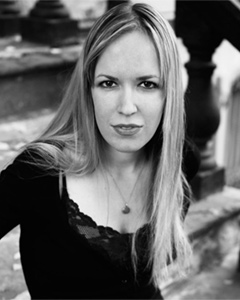
The music of Alexandra du Bois (PhD Stony Brook University, MM The Juilliard School, BM Indiana University Jacobs School of Music) is often propelled by issues of indifference and inequality throughout the United States and the world. Traveling to the countries that inform and inspire her work, her music has been performed in concert halls across five continents. With commissions from Kronos Quartet, Chamber Music Society of Lincoln Center, and Music Teachers National Association, she’s served as composer-in-residence at Carnegie Hall and Southwest Chamber Music Festival with whom she toured throughout Los Angeles and Vietnam. She has maintained a studio of private students since 2005, and frequently offers masterclasses to students at institutions throughout New York.
Creative Projects include:
Within Earth, Wood Grows
Commissioned for the 1000th anniversary of the city of Hanoi, incorporating Vietnamese folk instruments and texts by peace activist, writer, poet, teacher, and Zen Buddhist monk Thich Nhat Hanh
Hope Dies Last
Music with images of original photography and video mapping by photojournalist Michelle Andonian, commemorating the 100th year following the Armenian genocide during World War I
In Beauty, May I Walk
Music for women’s chorus, children’s chorus, and chamber ensemble based on the Day of the Night Chant from an ancient Navajo healing and prayer ceremony
